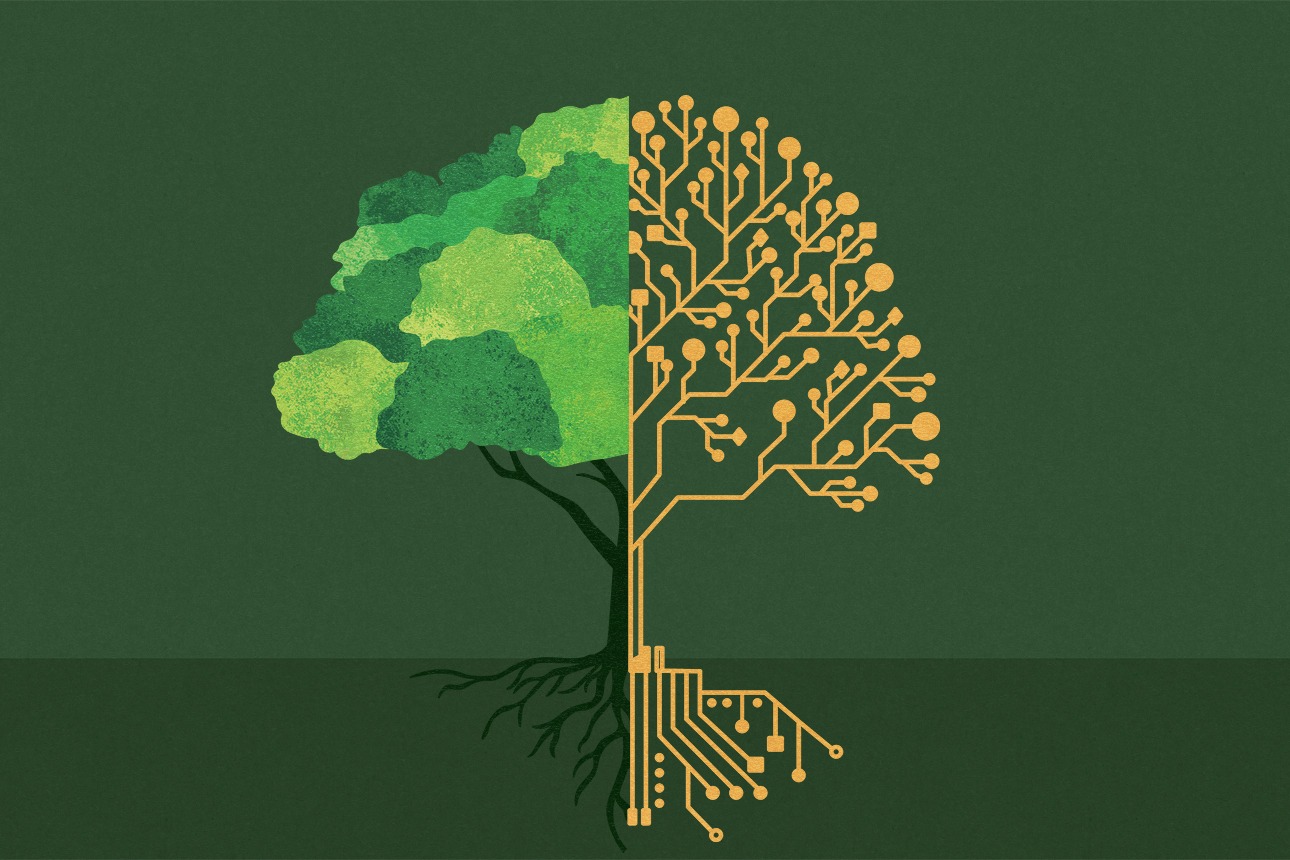
Quantum Computing: The Next Big Leap Beyond Traditional Computers
Quantum computing represents a transformative leap beyond classical computers, harnessing superposition and entanglement to process massive computations efficiently. It promises breakthroughs in cryptography, drug discovery, AI, finance, and complex problem-solving. Despite challenges in hardware stability, error correction, and scalability, ongoing research is rapidly advancing the field.
✨ Raghav Jain

Introduction
In a world driven by technology, computers have transformed how we live, work, and communicate. Yet, traditional computers—powerful as they are—have limits. Enter quantum computing, a revolutionary approach that promises to solve problems previously considered impossible for classical machines. By leveraging the principles of quantum mechanics, these computers have the potential to revolutionize industries, from medicine and cybersecurity to finance and artificial intelligence.
This article explores the science behind quantum computing, its advantages over classical computers, practical applications, and the challenges it faces. We’ll also discuss how this emerging technology could impact our daily lives and reshape the future. The world of technology is in a constant state of evolution, and few developments have captured the imagination of scientists, engineers, and businesses as profoundly as quantum computing. While classical computers have revolutionized how we live, work, and communicate, they face inherent limitations when tackling problems of immense complexity. Quantum computing promises to transcend these boundaries, offering a transformative leap that could redefine industries, scientific research, and our understanding of the universe.
At the heart of traditional computing lies the binary system, where information is processed using bits that exist in one of two states: 0 or 1. Every calculation, from simple arithmetic to complex simulations, is ultimately broken down into these basic units. Over decades, improvements in hardware, software, and algorithms have dramatically enhanced the speed and efficiency of classical computers. Yet, despite these advancements, certain problems remain extraordinarily challenging. Tasks such as simulating complex molecules for drug discovery, optimizing vast logistics networks, or factoring large numbers for cryptography often demand computational power far beyond the reach of even the most advanced supercomputers. This is where quantum computing enters the scene, offering an entirely new paradigm built on the principles of quantum mechanics.
Unlike classical bits, quantum computers use quantum bits, or qubits, which can exist in multiple states simultaneously through a phenomenon known as superposition. This allows a quantum computer to process a massive number of possibilities at the same time. Furthermore, qubits can be entangled, meaning the state of one qubit can be directly correlated with the state of another, regardless of the distance between them. This unique property enables quantum computers to perform certain calculations with an efficiency that is unattainable for classical systems. Essentially, quantum computing leverages the counterintuitive principles of quantum mechanics to execute tasks in ways that classical computers cannot even approach.
The potential applications of quantum computing are staggering. In the field of medicine and pharmaceuticals, quantum simulations could revolutionize drug discovery by modeling the behavior of complex molecules with unprecedented accuracy. This capability could significantly reduce the time and cost involved in developing new treatments, potentially saving countless lives. In finance, quantum algorithms can optimize portfolios, manage risk, and detect fraud far more efficiently than traditional methods. Industries like logistics and transportation could benefit from quantum-enhanced optimization techniques, reducing costs and improving efficiency in supply chains on a global scale. Even climate modeling and energy research could be transformed, as quantum computers can handle the intricate calculations required to predict weather patterns, model climate change scenarios, and optimize energy grids in ways classical computers cannot.
Despite its enormous promise, quantum computing faces formidable challenges. Maintaining qubits in a stable state is extremely difficult due to a phenomenon known as decoherence, where interaction with the environment causes the fragile quantum states to collapse. This instability necessitates highly controlled environments and advanced error correction techniques, making the construction of scalable and practical quantum computers a monumental engineering task. Additionally, designing algorithms that can fully exploit quantum hardware is a complex endeavor, requiring expertise at the intersection of computer science, mathematics, and quantum physics. Current quantum computers are still in the experimental stage, often referred to as Noisy Intermediate-Scale Quantum (NISQ) devices, capable of performing specific computations but not yet ready for widespread commercial deployment.
The race to develop functional quantum computers has ignited global competition among technology giants, startups, and governments. Companies like IBM, Google, Microsoft, and Rigetti are investing billions of dollars into quantum research, seeking to achieve "quantum supremacy"—the point at which a quantum computer can perform a task beyond the capability of any classical computer. Governments around the world recognize the strategic importance of quantum technology and are funding initiatives to accelerate its development, aware that quantum computing could redefine economic, military, and scientific dominance in the 21st century. Academic institutions are also expanding quantum research programs, training the next generation of scientists and engineers who will drive this transformative technology forward.
As quantum computing progresses, it will not replace classical computers but rather complement them, handling problems for which classical approaches are inefficient or impractical. Hybrid computing models, combining the strengths of both classical and quantum systems, are emerging as a practical pathway to harnessing quantum power while maintaining the reliability and versatility of traditional computing. This integrated approach allows industries to gradually adopt quantum solutions, leveraging their potential without abandoning the existing technological infrastructure.
Ethical considerations and security implications also loom large in the era of quantum computing. Quantum computers could render current encryption methods obsolete, posing risks to data security and privacy. Preparing for a post-quantum world requires developing new cryptographic protocols resistant to quantum attacks, ensuring that sensitive information remains protected. Furthermore, equitable access to quantum technology is a concern, as nations and corporations with advanced resources could dominate its benefits, potentially widening existing technological and economic disparities. Addressing these issues thoughtfully will be crucial to ensuring that quantum computing serves as a force for global progress rather than exacerbating inequality.
In conclusion, quantum computing represents one of the most exciting frontiers in modern science and technology. By harnessing the strange and powerful principles of quantum mechanics, it offers the potential to solve problems that are currently intractable, driving innovation across medicine, finance, logistics, climate science, and beyond. While challenges in stability, scalability, and algorithm design remain, the ongoing investments and breakthroughs signal that a quantum future is approaching rapidly. This next big leap beyond traditional computers is poised to reshape our world, promising a new era of discovery and possibility that was once confined to the realm of imagination. Quantum computing is not merely an incremental improvement; it is a fundamental rethinking of what computation can achieve, opening doors to opportunities that have the power to transform human society on a scale never before seen.
Understanding Quantum Computing
To understand quantum computing, it helps to first look at classical computing. Traditional computers use bits—binary units represented by 0 or 1—to process and store information. Quantum computers, on the other hand, use qubits.
Qubits can exist in multiple states simultaneously, thanks to quantum phenomena like:
- Superposition: Unlike a bit that is either 0 or 1, a qubit can be in a combination of both states at the same time, allowing a quantum computer to process massive amounts of information simultaneously.
- Entanglement: When qubits become entangled, the state of one instantly affects the state of another, even if they are far apart. This property enables quantum computers to perform complex calculations far faster than classical computers.
- Quantum Interference: By manipulating qubits, quantum computers can amplify correct solutions while canceling out wrong ones, improving efficiency in solving problems.
Together, these properties make quantum computers fundamentally different—and more powerful—for certain types of calculations. How Quantum Computing Differs from Traditional Computers
Processing Power:
A traditional computer solves problems step by step. A quantum computer can explore multiple possibilities simultaneously, making it exponentially faster for specific tasks.
Problem Solving:
Tasks like factoring large numbers, simulating molecules, or optimizing complex systems are extremely slow for classical computers but feasible with quantum computing.
Data Representation:
While classical computers use bits (0 or 1), quantum computers leverage qubits that encode more information per unit.
Efficiency:
Quantum algorithms, like Shor’s and Grover’s algorithms, reduce computation time for complex problems drastically.
Limitations of Classical Computers:
Even supercomputers struggle with tasks like climate modeling, drug discovery, or cryptography at scale. Quantum computers have the potential to overcome these limitations.
Key Applications of Quantum Computing
1. Medicine and Drug Discovery
Quantum computers can simulate molecular interactions in seconds—something classical computers might take years to calculate. This could lead to faster discovery of new drugs, vaccines, and personalized medicine.
2. Cybersecurity
Traditional encryption relies on the difficulty of factoring large numbers. Quantum computers could break these codes, but they also enable quantum encryption, which is theoretically unbreakable.
3. Artificial Intelligence & Machine Learning
Quantum computing can process vast datasets simultaneously, optimizing AI models, improving pattern recognition, and enhancing predictive analytics.
4. Finance and Optimization
From risk modeling to portfolio optimization, quantum computing can analyze complex financial systems more efficiently than classical methods.
5. Climate and Environmental Modeling
Quantum simulations can predict climate changes, chemical reactions, and ecosystem dynamics at an unprecedented scale, supporting sustainability efforts.
6. Logistics and Supply Chain
Quantum algorithms can solve optimization problems faster, improving delivery routes, warehouse management, and production schedules.
Challenges and Limitations
Despite its promise, quantum computing faces significant challenges:
- Error Rates: Qubits are extremely sensitive to environmental noise, leading to errors in calculations.
- Decoherence: Maintaining quantum states for extended periods is difficult.
- Scalability: Building large-scale, stable quantum systems is a major technical hurdle.
- Cost: Quantum hardware is expensive and requires specialized cooling systems.
- Algorithm Development: Quantum programming is complex and requires specialized knowledge.
Researchers are actively working on error correction, fault-tolerant qubits, and hybrid systems that combine classical and quantum computing to overcome these limitations.
How Quantum Computing Could Affect Everyday Life
While fully operational quantum computers may still be years away, their influence is expected to touch multiple aspects of daily life:
- Faster drug development could lead to quicker treatments for diseases.
- Improved AI could enhance personalized recommendations, smart home systems, and self-driving technologies.
- Better weather predictions may help communities prepare for natural disasters.
- Stronger cybersecurity could protect sensitive data from cyberattacks.
Even industries that don’t directly use quantum computers could benefit from faster simulations, optimized logistics, and new insights into complex systems.
Practical Steps to Stay Ahead in the Quantum Era
Even if you’re not a quantum scientist, there are ways to engage with this emerging field:
- Learn the Basics: Explore online courses on quantum mechanics, quantum computing, and quantum programming languages like Qiskit.
- Follow Research: Keep up with industry leaders like IBM, Google, and Microsoft who are pioneering quantum technology.
- Experiment with Simulators: Use cloud-based quantum simulators to practice algorithms without owning quantum hardware.
- Understand Impact: Consider how quantum computing could affect your career, industry, or business strategy.
- Advocate for Quantum Literacy: Share knowledge about quantum computing in schools, workplaces, or online communities.
Quantum Computing Myths: Busted!
“Quantum computers will replace classical computers.”
→ False. They are designed for specialized tasks. Classical computers remain essential for most everyday computing.
“Quantum computing is ready for everyone.”
→ Not yet. Current systems are mostly experimental, and practical applications are limited to research or specific industries.
“Quantum computers are magic and infinitely powerful.”
→ They are powerful for specific problems, but they don’t solve everything instantly.
“Learning quantum mechanics is impossible.”
→ Not true. Beginner-friendly courses and simulators make it accessible for curious learners.
“Quantum computers will instantly solve world problems.”
→ Solving problems still requires algorithms, research, and integration with classical systems.
Daily Engagement with Quantum Concepts
Even if you don’t have access to a quantum computer, you can develop familiarity with the concepts:
Morning:
- Read a short article or watch a video on quantum principles.
- Reflect on one real-world problem that quantum computing could help solve.
Midday:
- Explore a free online quantum simulator or interactive tutorial.
- Think about how entanglement or superposition could optimize a task you do.
Evening:
- Discuss quantum concepts with peers or online communities.
- Reflect: “What is one way quantum computing could change the world tomorrow?”
Weekly engagement could include completing a mini-project, building simple quantum circuits on simulators, or writing a summary of recent breakthroughs.
Conclusion
Quantum computing represents a paradigm shift—a leap beyond traditional computing. By harnessing the principles of superposition, entanglement, and interference, quantum computers promise solutions to problems once deemed impossible. From medicine and AI to finance and climate science, the potential applications are vast and transformative.
While challenges like scalability, error correction, and cost remain, the quantum revolution is steadily progressing. Staying informed, experimenting with simulations, and understanding its implications can help individuals and industries prepare for the quantum era.
The future is quantum. It’s complex, fascinating, and full of possibilities. Even small daily steps—learning concepts, exploring simulators, and following innovations—can help you stay ahead and appreciate the transformative potential of this next big leap in computing.
Embrace the quantum mindset, explore the possibilities, and imagine a world where today’s impossibilities become tomorrow’s breakthroughs.
Q&A Section
Q1:- What is Quantum Computing and how does it differ from classical computing?
Ans :- Quantum computing uses qubits that can exist in multiple states simultaneously, unlike classical bits which are either 0 or 1. This allows quantum computers to solve complex problems much faster than traditional computers.
Q2:- How do qubits enable quantum superposition and entanglement?
Ans :- Qubits can exist in superposition, representing multiple states at once, and can become entangled, meaning the state of one qubit instantly affects another, enabling massive parallel computations.
Q3:- What are the main types of quantum computers currently being developed?
Ans :- The main types include superconducting qubits, trapped ions, topological qubits, and photonic quantum computers, each with unique advantages in stability, scalability, and error correction.
Q4:- How can quantum computing impact cryptography and cybersecurity?
Ans :- Quantum computers could break many classical encryption algorithms quickly, but they also enable quantum-resistant cryptography, ensuring secure communication for the future.
Q5:- In what ways can quantum computing accelerate drug discovery and healthcare?
Ans :- Quantum computers simulate molecular interactions at the quantum level, reducing drug discovery time, predicting protein folding, and developing personalized medicine efficiently.
Q6:- How does quantum computing benefit finance and optimization problems?
Ans :- Quantum algorithms can optimize portfolios, manage risk, simulate market scenarios, and solve complex optimization problems faster than classical methods, enhancing decision-making.
Q7:- What are the main challenges in building scalable quantum computers?
Ans :- Challenges include qubit decoherence, error correction, stable entanglement, cryogenic cooling requirements, and high hardware costs, all of which limit large-scale deployment.
Q8:- How is quantum computing being applied in artificial intelligence?
Ans :- Quantum computing accelerates machine learning by handling vast datasets, optimizing training processes, and solving complex models that classical computers struggle with.
Q9:- What industries are likely to see the earliest impact of quantum computing?
Ans :- Pharmaceuticals, finance, logistics, materials science, energy, and cryptography are among the first to benefit due to their reliance on complex simulations and optimization tasks.
Q10:- What is the future outlook for quantum computing?
Ans :- Quantum computing is poised to complement classical computing, enabling breakthroughs in science, industry, and technology, while gradually becoming more accessible as research and hardware improve.
Similar Articles
Find more relatable content in similar Articles

The Hidden Energy Cost of Stre..
As digital streaming and onlin.. Read More

3D-Printed Organs: Are We Clos..
3D-printed organs are at the f.. Read More

The Rise of Digital Twins: You..
Digital twins are transforming.. Read More

Virtual Reality Therapy: Heali..
Virtual Reality Therapy (VRT) .. Read More
Explore Other Categories
Explore many different categories of articles ranging from Gadgets to Security
Smart Devices, Gear & Innovations
Discover in-depth reviews, hands-on experiences, and expert insights on the newest gadgets—from smartphones to smartwatches, headphones, wearables, and everything in between. Stay ahead with the latest in tech gear
Apps That Power Your World
Explore essential mobile and desktop applications across all platforms. From productivity boosters to creative tools, we cover updates, recommendations, and how-tos to make your digital life easier and more efficient.
Tomorrow's Technology, Today's Insights
Dive into the world of emerging technologies, AI breakthroughs, space tech, robotics, and innovations shaping the future. Stay informed on what's next in the evolution of science and technology.
Protecting You in a Digital Age
Learn how to secure your data, protect your privacy, and understand the latest in online threats. We break down complex cybersecurity topics into practical advice for everyday users and professionals alike.
© 2025 Copyrights by rTechnology. All Rights Reserved.